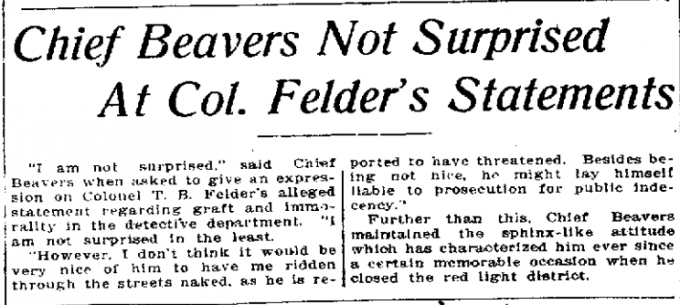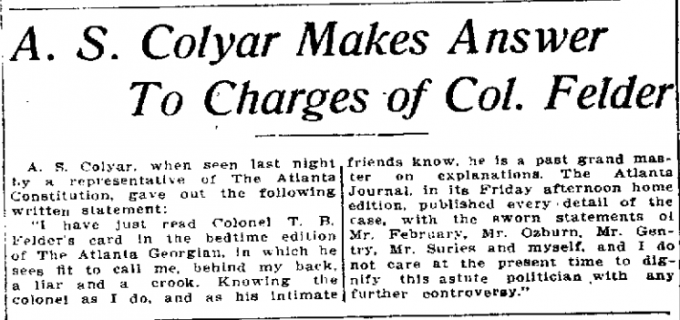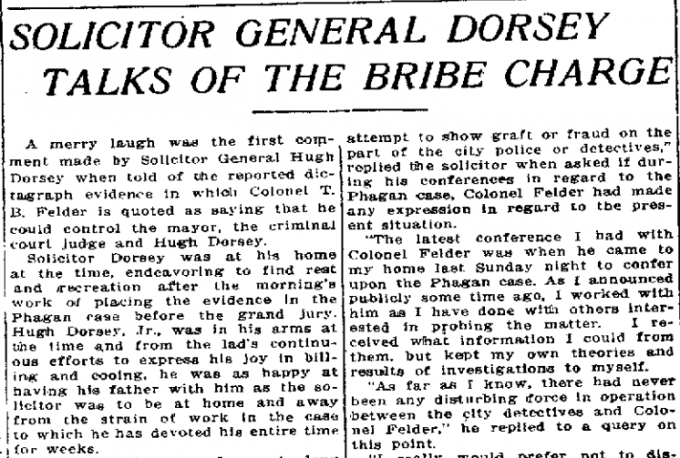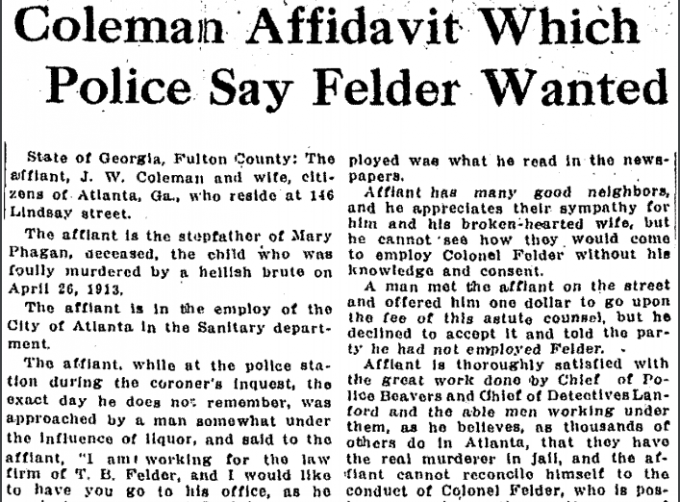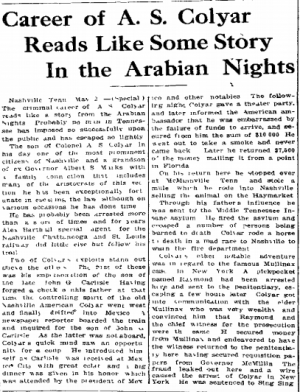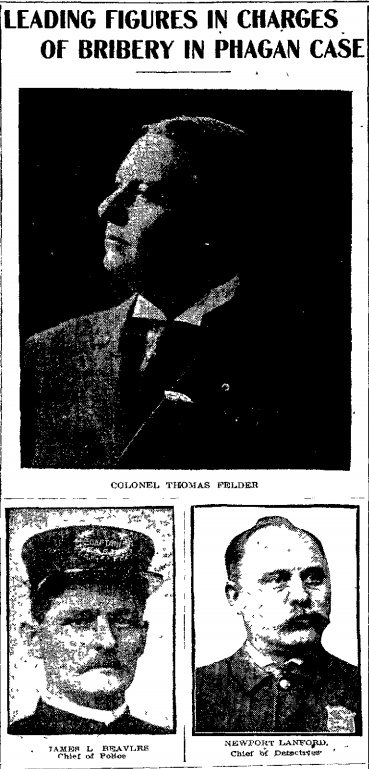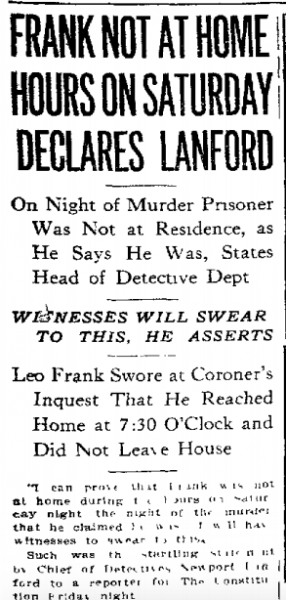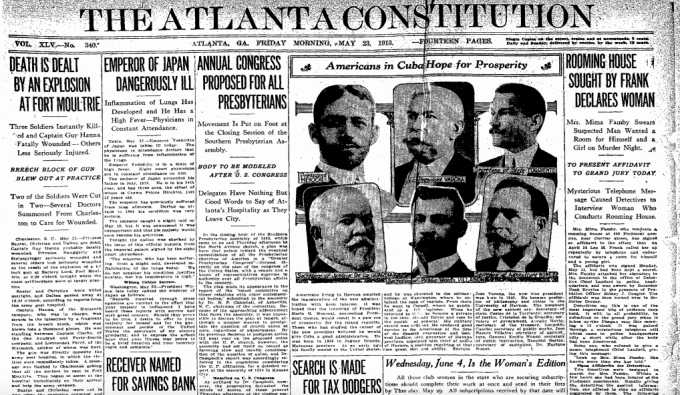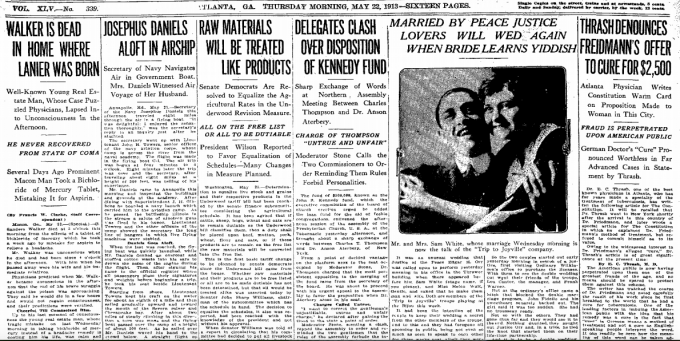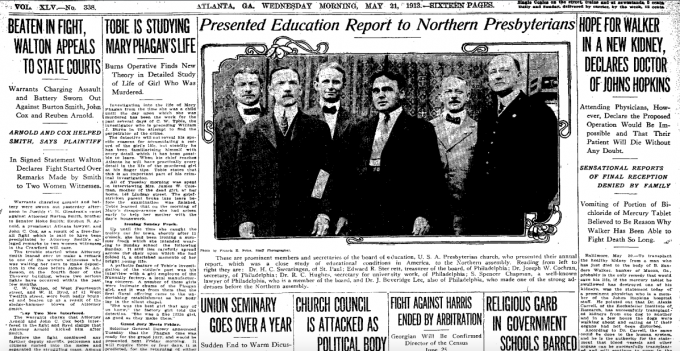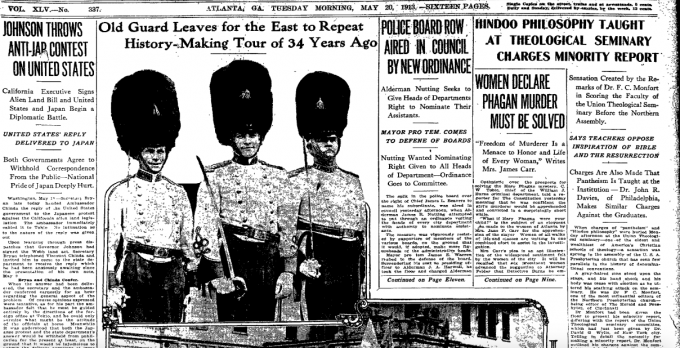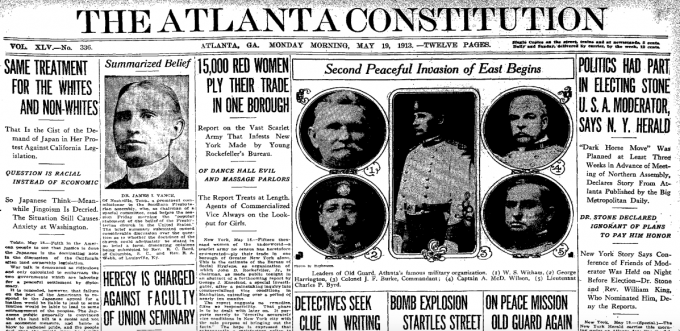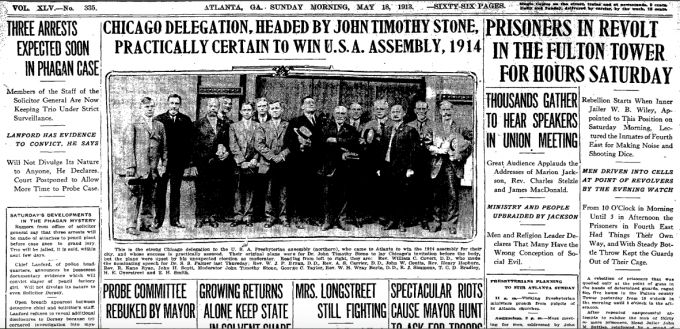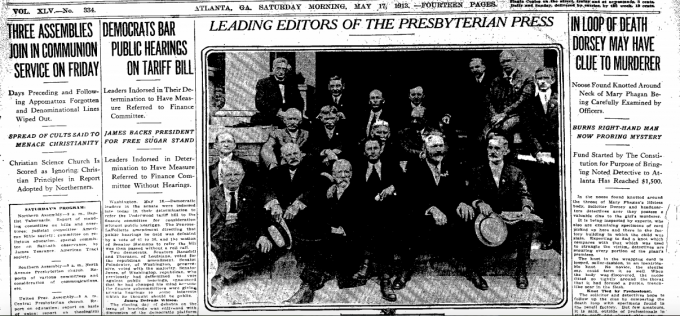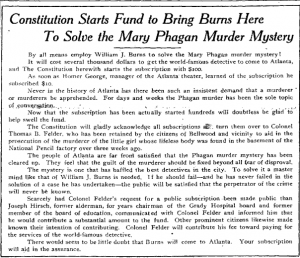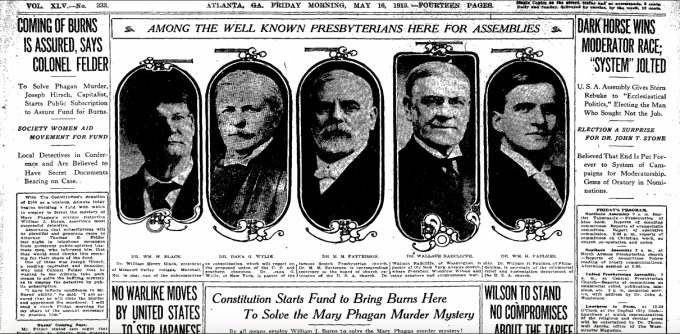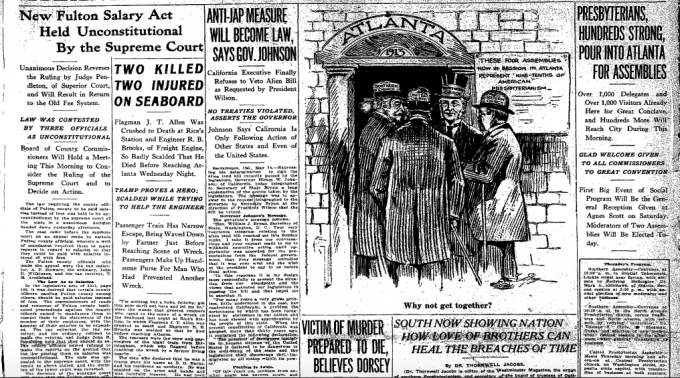 Another in our series of new transcriptions of contemporary articles on the Leo Frank case.
Another in our series of new transcriptions of contemporary articles on the Leo Frank case.
Atlanta Constitution
Saturday, May 24th, 1913
City Detective Department Holds Statements Alleging Attorney Made Attempt to Secure Coleman Affidavit.
SAY FELDER OFFERED $1,000 FOR THE PAPER
Report of Conversation Between Col. Felder, Secretary Febuary and A. S. Colyar Taken Down by Gentry
Colonel Thomas B. Felder—the man who brought the dictograph south and used it with such telling effect in the Blease investigation in South Carolina—has himself [several words illegible] and a charge of [several words illegible] against him and [several words illegible] which [several words illegible] the department declared [several words illegible].
Charges are made that Colonel Felder offered a bribe of $1,000 in order to have affidavits [1 word illegible] Phagan murder case stolen from the [1 word illegible] of Chief of Detectives N. A. Lanford and that he offered [several words illegible] the chief’s secretary if he would make the theft.
The charges are backed up by a detailed dictograph record of [several words illegible] which took place in a room of the Williams house No. 2 last Wednesday [several words illegible] Colonel Felder, Secretary G. C. Febuary and A. S. Colyar, [several words illegible] the [several words illegible] according to sworn statement by George M. Gentry [several words illegible] the expert [several words illegible] who is a nephew of Colonel W. T. Gentry [several words illegible].
Affidavit Says Felder Approached Colemans
The affidavit which the detectives declare Felder offered $1,000 to gain is a statement signed by Mr. and Mrs. J. W. Coleman and stepfather and mother of Mary Phagan. In this statement they [1 word illegible] that Colonel Felder approached them and [several words illegible] it would not cost them 1 cent.
Affiant told him he did not want to employ him and did not want to have anything to do with him, reads the affidavit. It goes on to explain that Mr. and Mrs. Coleman are satisfied with the work of the Atlanta police department. Continue Reading →


